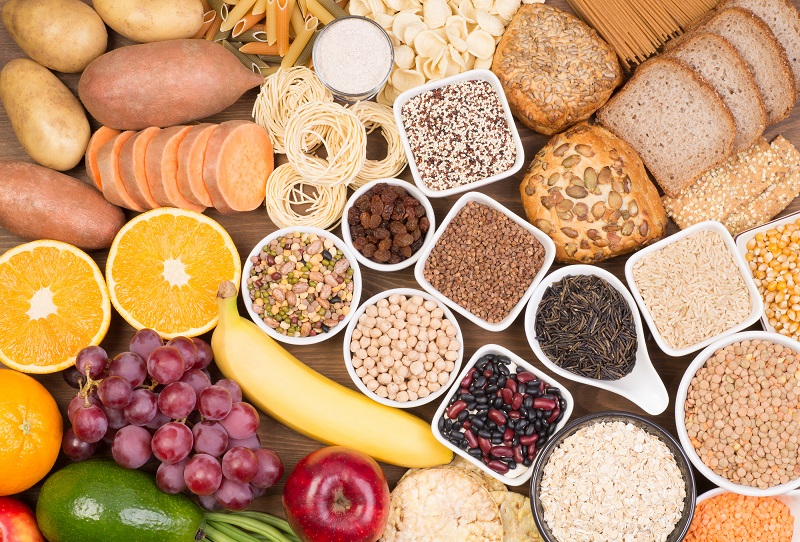We eat and drink foods to nourish and sustain our body through a complex process of digestion and absorption. Food provides us with energy to fuel our body and nutrients to help us grow and heal.
The amount of body fuel a food provides us is measured in calories (or kilojoules*). The more calories a food contains, the more body fuel it provides to our body. The total calorie content of food is determined by the amount of Carbohydrates, Fats and Proteins the food contains – these are Macronutrients.
What are carbohydrates?
Carbohydrates are digested by the body and converted to glucose which is then either used as body fuel or is stored in the liver and muscles as glycogen. There are three main types of carbohydrates.
1. Sugars such as fructose, glucose, lactose and sucrose
2. Starches are also referred to as complex carbohydrates and are found in starchy foods such as bread, potatoes and beans.
3. Fibre – the indigestible part of plant foods.
Carbohydrate rich foods include potatoes, pasta, rice, noodles, fruit, bread, beans, cereals and more.
1 gram of carbohydrates = 4 calories


